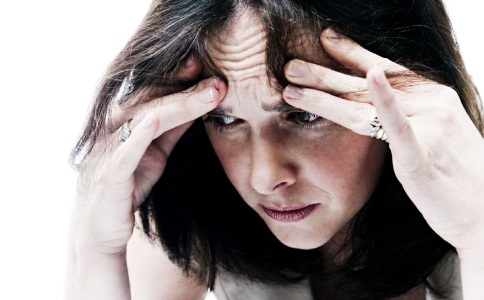MOST DOCTORS PRESCIBE SSRI’S FOR THE WRONG REASON.
These days, it seems as though “depression” and “anxiety” are seldom teased apart. The issue there is, the more we group these two together, the less precise we become in our diagnoses of these fundamentally different conditions. This can have dire consequences in terms of treatment, medication, and overall quality of life.
That’s why we’re here. We want to clear things up.
Let’s start off with depression – a deeply debilitating condition, which is marked by the loss of hope. When a person is depressed, he or she is simply incapable of functioning. It’s beyond sadness. Sadness is a directed feeling; it has an object. When something bad happens – say, you experienced an unfortunate loss or you didn’t get that promotion you were hoping for – you might feel sad, blue, down-in-the-dumps, if you will. An unfortunate event has transpired, and as a direct result, you are experiencing anormal human reaction.
Depression is different.
Depression has no discernable object. You could quite literally have it all – money, friends, family – and still be deeply depressed. Notice: depression is a state – not a feeling. It is, rather, a lack of feeling, which is experienced as an overwhelming void.
Depression, unlike sadness, is hard to cover-up. It is marked by a relentless apathy that makes it impossible to smile, eat, love…. Essentially, it becomes impossible to live.
Anxiety is quite different. While the experience varies on a case-by-case basis, anxiety can be generally described as a sensation of panic. Heart rate increases. It becomes harder to breathe. Everything inside begins to tighten up. Some people experience pain in various parts of their body.
Similarly to depression, this physiological reaction is not necessarily rooted in any specific or logical circumstance, but it can be. Bouts of anxiety tend to have a predictable cause albeit illogical to the outside observer. In general it seems to revolve around some kind of fear, be it fear of failure, fear of rejection, fear of judgment and for some it can be fear of success.
Regardless of the cause of the anxiety, what is most consistent is the inability to cope with that particular situation. Anxiety is different from depression is that outside that scenario the person can feel and behave absolutely normally whereas with depression there is no place that they can feel and function absolutely normally.
There are of course cases of generalized anxiety disorder, in which a person suffers a chronic level of panic/anxiety, which results in or can be caused by a hormonal imbalance. As the brain struggles to cope with the feelings of panic it can evolve into a sense of despair from the relentless feelings of anxiety.
While it is evident that depression and anxiety are quite different, unsurprisingly, the two tend to interact. But while prolonged anxiety or stresscan result in depression, the conditions are hardly the same, and thus require very different treatments.
Depression is rooted in a lack of norepinephrine. This raises the question: why are depressed people prescribed SSRIs, which increase serotonin levels in the brain?
They shouldn’t be.
SSRI’s should be reserved solely from those suffering from anxiety, where low serotonin levels are really at the root of the problem. Even so, SSRIs are a radical solution to what is often a problem amenable to more holistic and natural treatments.
Many people have found that by addressing the underlying cause of their anxiety they can experience lasting relief without the side effects associated with the SSRI’s. In particular a deficiency of the MTHFR enzyme can be the reason for a lack of serotonin and by taking the nutrients found in the Vitaben’s Hero’s formula in conjunction with GLA, relief from anxiety can be had within only a few days.
Ultimately, it is important to remember that depression and anxiety are not the same. In fact, both chemically speaking, and in their psychological manifestations,they are quite different.
So, for optimal treatment, we must treat them differently.
